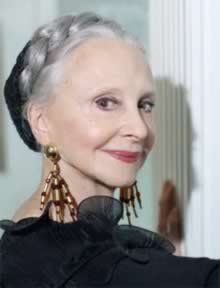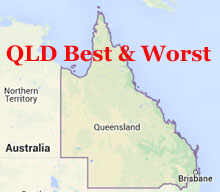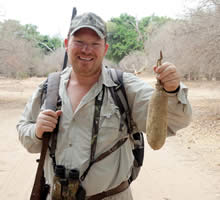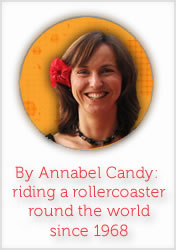10 Books That Will Change Your Life

Many years ago I swore off self help books. I felt like I’d read them all, I thought that I was fixed and I didn’t see the need to improve myself further.
But things change and not always for the better. This year a redescent into depression sent me once again scurrying to Google, Amazon and the library searching for books which might help me and seeking wisdom from people with a new perspective on life.
It’s no exaggeration to say I’ve been doing a lot of reading lately, and almost exclusively books of the non-fiction kind.
Some of those books have changed my life by giving me a reason to stop thinking about meditating and actually do it. The first book I recommend here has helped me understand why my depression has recurred after ten years and how mindfulness can fix it now and forever.
I’m also including three memoirs about addiction, another topic that fascinates me because I have an addictive personality and I believe we all use certain substances – be they big ones like alcohol, drugs, sex or apparently innocuous ones like exercise, the Internet or chocolate – to help us get through the hard times and stop us from feeling painful emotions.
I think if we can understand the emotional causes for our addictions then we can beat them and bring about lasting change. Addiction is so pervasive in our modern society so it’s something we need to talk about seriously and see as a catalyst for personal change rather than an admission of failure.
These are a books are wildly different in many ways with authors ranging from a drug addicted rock start to a Nobel peace prize nominee yet they are all provide inspiration and instruction on how to change your life.
As always I’ve only included the very best books I’ve read, not every single book I’ve read recently and I really hope you’ll find one of these book recommendations will help you as much as it has me.
I’ve also included a quote from each book to give you a taster and help you to start changing your life right now.
If you decide you want to buy any of these books for yourself or a loved one I’ve created an Amazon list to help you find them. This is an affiliate link so I get a 4% commission on any sales. It’s nowhere near enough to cover my books addiction so if you use the affiliate link I’d love that but if not that’s okay too. Find the books on Amazon here.
On Depression and Mindfulness
1. The Mindful Way through Depression: Freeing Yourself from Chronic Unhappiness by Jon Kabat-Zinn, Mark Williams, John Teasdale and Zindel Segal
Jon Kabat-Zinn, the godfather of mindfulness and his learned colleagues will get you clued up on meditation, mindfulness and awareness. The Mindful Way through Depression book comes with an audio CD of guided meditations such as the body scan and outlines an eight week program on mindfulness and meditation for beginners.
On how awareness can help us become more aware of our emotions and reduce depression:
“If we actually practice bringing awareness to the chain of reactions to particular moments and circumstances, we have an excellent opportunity, each time we do so, to break the strong link between these basic “gut feelings” and the totally automatic and also largely unconscious reactions that follow so rapidly on their heels, and in unpractical the reaction we have described as aversion. Since “unpleasantness” is common to and underneath all negative emotions – sadness, anger, disgust, and anxiety – we have the chance to develops a generic “early warning system” for all afflictive emotions, whatever form they take as they emerge into consciousness. By tuning in with great sensitivity to the messages of the internal barometer, we may recognize any unpleasant feelings that we have previously screened out, as they are actually happening. Bringing them into awareness weakens their influence over our mind and enables us to respond to them in ways that do not evoke or perpetuate aversion and make spiraling into depression more likely.”
2. Sane New World by Ruby Wax
Ruby Wax is an American comedian who lives in the UK. Not only hilarious she is also plagued by mental health problems and depression. After spending time in a mental health institution Wax decided to look into cures for her recurring depression and completed a Masters degree at Oxford University in Mindfulness-based Cognitive Therapy.
This book is great for people who are new to the idea of mindfulness and includes exercises to help you practice mindfulness. I also recommend it for young people or teenagers.
On the point of mindfulness:
“Once you stand back, you don’t try to make things different, it’s not even about relaxation but about witnessing what ever is going on without the usual critical commentary. Rather than run away or repress negative thoughts and feelings,
you relate to them from a different angle, experience them through a different lens. It’s the effort of trying to change things from what they are that ultimately exhausts us.”“Mindfulness eases physical and emotional pain and sharpens your concentration and focus.”
“Mindfulness will help you become more connected to the feelings that your body is telling you about.”
On acceptance:
“Acceptance isn’t resignation. It provides you with a means of responding skilfully rather than the usual knee-jerk reaction.”
Inspiration to be Yourself
3. Introvert Power by Laurie Helgoe
We’re trained to think that introverts are strange and that being extroverted is a key to success in all fields of our life. So it came as a big relief to me to read this book and learn that over 50% of the global population are introverts and that it’s perfectly okay and nothing to be ashamed of.
This book explains why extroverts commonly feel alienated by society, why this can lead to depression and how to give yourself permission to embrace your introversion and the extroverted side of you which no doubt co-exists inside you.
On the dangers surrounding the pressure to be extroverted:
“negative self talk is a particular risk for the accessible Introvert. Because we have almost adapted to the extrovert culture, we get down on ourselves for not being more extroverted. We look in the mirror with puzzled expressions and worry about our capacities.”
On dealing with hard times:
“Practice viewing your life cinematically. Step back and enjoy the not knowing. When things get harder or life takes a turn, see the challenge as a plot thickener and remind yourself that the plot will resolve. Notice the artistic quality of your day, ie how you get dressed, what you see on your walk.”
On blending introversion and extroversion:
“There’s no such thing as a pure introvert, we all have times when we want to get in the mix.”
On midlife change and personal growth:
“It is good to define yourself, and it is good to know when it’s time to break out of the definition and get bigger.”
“As Buddha put it “believe nothing”. Introversion does not fully describe you, nor does any category. The road to healthy psychology is to get an identity then lose it. Then get another identity and lose that one. Seek truth and live by it.”
On the fear of change:
“Know when you’re stuck. Boredom is a clue. Addiction is a clue. Low energy is a big clue. Real desire promotes flow and expands you. Fear, sometimes masked as desire, constricts. You may feel compelled to stay locked behind your computer even though you are miserable there. This is not desire; this is avoidance, a response to fear.”
On the right time to change:
“A six stage model of change, identified by researchers Prochaska, Norcross, and DiClemente, has begun to be used in a broad range of settings, from smoking cessation programs to sunscreen use campaigns. The research shows that successful change starts inside, where the first three stages take place: pre-contemplation, contemplation and preparation. So if you want to get “out there” you do better when you build up your desire internally.”
On dealing with the paradoxes inside you:
“According to Jung integrating opposites within the personality not only brings a person closer to wholeness but frees up life energy.The more a person is able to tolerate paradox in search of truth, the less energy will be spet defending a rigid position.”
4. Life is Huge! by Susan Jeffers
This is an old style personal development book by the author of Feel the Fear and Do it Anyway. I read a lot of this thinking about how many of the tips would make you feel more depressed because sometimes it’s impossible to change your attitude and look on the bright side of things.
Some tips seem almost condescending because they’re so obvious and yet far easier to say than do:
“Let’s go of the expectations and make something wonderful from what is.
Love how to control your reactions to all things in your life
Focus on the abundance instead of the lack
Focus on the giving instead ofthe getting
Lighten up
Be patient with yourself… And others.”
But I really enjoyed some of Jeffer’s stories especially The Land of Tears about how she learned to give herself permission to cry and feel the sadness in life.
On pain:
“Letting in the pain of being human has allowed me to embrace the joy of being human.”
5. Advanced style by Ari Seth Cohen
I adored this collection of photos of stylish older women and a few men. This book proves that you can still have fun, be creative and live life to the full no matter how old you are.
The photos on this page are taken from the Advanced Style book which was inspired by Seth Cohen’s blog.
Here are some quotes I love from two of the inspiring women who are featured in the book:
“In your body is a good place to be.”
“We must dress every day for the theater of our lives.”
Memoirs about Addiction
6. Sex, Drugs and Meditation by Mary-Lou Stephens
Courageous and inspiring memoir about how spending 10 days in a silent retreat changed Mary Lou Stephens forever in a very good way. Mary Lou visited Noosa for the Noosa Long Weekend where I heard her talk about her life and memoir and listened to her sing some of her beautiful songs.
Afterwards we went out for lunch together and talked more about life in general and sex, drugs and meditation in particular. I love how Mary-Lou has used meditation to help her overcome many inner demons and how willing she is to talk about the changes she’s made.
On becoming aware of and sitting with emotions rather than reacting to them:
“With that one sentence the wall between us had been dissolved and only love was left. After a lifetime of blame and recriminations, in that moment there was only compassion and love. And I’d allowed it to happen because I allowed it to be. I didn’t react. I sat with it. And the beautiful truth rose to the surface.”
7. High Sobriety by Jill Stark
Jill Stark gave up alcohol for a year. No small feat in Australia where drinking is deeply embedded in the culture and not drinking is viewed with suspicion.
On waking with a hangover on New Year’s Day, the moment when she realised she wanted to change her life:
“I gag as I think of all the booze I put away in December — one long party interspersed with stolen moments of sleep and tortured days at work.
But covering alcohol is my job. I’m the binge-drinking health reporter. During the week, I write about Australia’s booze-soaked culture. At the weekends, I write myself off. For five years I’ve documented the nation’s escalating toll of alcohol abuse as a health reporter for The Age and The Sunday Age, so I know, more than most, the consequences of risky drinking. I’ve even won awards for my ‘Alcohol Timebomb’ series, which highlighted the perilous state of our nation’s drinking habits. But it hasn’t deterred me.”
8. Scar Tissue by Anthony Keidis
I’d never heard of the lead singer of the Red Hot Chili Peppers but his memoir got on my radar and, apart from his colossal ego and nasty sexual preference for young girls, it was a good read with great insights into addiction and recovery.
On knowing nothing:
“Adolescence is such a fun time in your life, because you think you know it all, and you haven’t gotten to the point where you realize that you know almost nothing.”
On making changes and then reverting to form:
“It’s weird, I was such a survivor and so wanted to be a part of life while I was trying to snuff out the life that was inside of me. I had this duality of trying to kill myself with drugs, then eating really good food and exercising and going swimming and trying to be a part of life. I was always going back and forth on some level.”
On recovery and making lasting change:
“The good news is that by the second year, those cravings were about as half as frequent, and by the third year, half as much again. I’m still a little bent, a little crooked, but all things crooked, I can’t complain. After all those years of all kinds of abuse and crashing into trees at eighty miles an hour and jumping off buildings and living through overdoses and liver disease, I feel better now than I did ten years ago. I might have some scar tissue, but that’s alright, I’m still making progress. ”
On relationships:
“A certain amount of volatility and drama can me healthy and keep things fun and interesting if you’re willing at any moment during a fight to say, ‘This means nothing. I love you, let’s forget about it.”
Buddhist Fiction
9. The Novice by Thich Nhat Hanh
Beautiful ancient Vietnamese folk tale retold by Nobel peace prize nominee Thich Nhat Hanh. These quotes are from his notes on practicing love at the end of the book.
On changing your life:
“When things go wrong you try harder, and when you try harder, things continue to go wrong. You say, “this is just not my day.” The best thing to do is to stop struggling, go home to yourself, and recover yourself. Don’t just keep slogging on, counting on your talent and intelligence to make things right. You have to go home and re-establish your solidity, freedom, peace, and calm before you try again.”
On staying calm to bring about change:
“We may be abused by others, but we also maybe the victim of ourselves. We tend to believe that our enemy is outside of us, but very often we are our own worst enemy because of what we have done to our bodies and our minds. Some people who find themselves in a very difficult situation do not let rage or anxiety take over their minds, and that is why they don’t suffer as much of other people in the same situation. Since they are not victims of anger and fear, their minds remain calm and clear, and they can do something to help change the situation.”
On changing the way you think:
“Our true enemy is our way of thinking – blinded by our pride, anger, and despair.”
On anger and fear:
“The Spiritual dimension of your life is so important. Without it you are overwhelmed by anger, despair and fear and you cannot help yourself, so how can you help other people? Anger is fire; fear, despair, and suspicion are fire; and they continue to burn you. We have gone through the fire, and we know how hot it is.”
Inspiration for Meditation
10. Arriving at Your Own Door – 108 Lessons in Mindfulness by Jon Kabat-Zinn
It’s fitting to begin and end this list with a book by Jon Kabat-Zinn because his thoughts on mindfulness have been invaluable to me as I make some much needed life changes. This is a short sharp book filled with quotes to motivate you to continue meditation practice and personal growth.
On self love:
“It is indeed a radical act of love just to sit down and be quiet for a time by yourself.”
I hope you’ll be inspired to read more from some of these books and find the courage to continue to make any life changes you’re working on.
We have to believe that we’re perfect just the way we are. We may not need to improve ourselves, but change happens whether we want it to or not.
Maybe I should learn from my mistakes and stop swearing about anything but I’ll stick my neck out here.
I swear we should all be surrounded by books and people that will help us make sure all our life changes are for the better.
Find the books on Amazon here.
Have you read any books that changed your life?









Dear Annabel,
I’m so amazed by the depth of reading you’ve done on the topic of emotional wellness, meditation, and so on. These all look like winners. I’m familiar with Jon Kabat-Zinn and for sure you can’t go wrong with one of his books!
I’m happy to hear that the information in these books has helped you and made your life a little brighter. You are awesome.
Hi Sandra,
Thank you! You’re awesome too for commenting before I even had a chance to tweet my post :)
Hi Annabel
The High Sobriety book sounds intriguing – I gave up booze over two years ago now – its one of the best things i ever did – i may have to give the book a go, just the smell of alcohol makes me gag now.
Anthony Kiedis’s bok has been on my “to read” list for a while – been a fan since the late 80’s
I’ve just finished Frank Zappa’s biog – Weirdly inspirational…..or do i mean inspiration-ally weird :-)
Tristan
Hi Tristan,
That’s impressive. I’ve been dry since January :) High Sobriety is a great book.
You must read Scar Tissue, especially if you’re a fan.
Love the recommendation – it’s so good to read outside your comfort zone and Frank Zappa’s memoir would definitely do that for me! Weirdly inspirational…..or do i mean inspiration-ally weird both sound good :-)
I just love how you take the bull by the horns and forge your way forward. You are so much stronger than you know, and your openness about your process has, undoubtedly, helped many.
I’m really proud of you.
xob
Hi Barbara,
Thank you :)
Thank you for reminding me of Advanced Style, Annabel. I definitely need to feature it on my blog! And also for the other recommendations. I’m coming more and more to think that mindfulness training is the way through, in general.
I always find autobiographies to be the most inspiring reads. Learning from the success and failures of others is a great way of gaining perspective on your own life and potentially becoming life changing. I recently read an autobiography from Kieran Doherty called Back From The Abyss-The Autobiography Of A Low-Bottom Alky. Dohertys’ life was deeply troubled by alcoholism and much of the story is really quite tragic but I found it to be a truly inspiring read and took a lot away from it. Beautifully written and absolutely fascinating throughout.